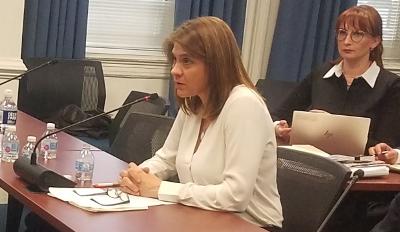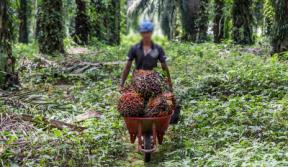
Publication Date:
On January 30, 2020, Judy Gearhart testified on workers' rights in Uzbekistan at a public hearing held by the Office of United States Trade Representative. Here is ILRF's written testimony and below are Judy's remarks at the hearing.
Good afternoon. Distinguished members of the GSP Subcommittee. My name is Judy Gearhart. I am the Executive Director at International Labor Rights Forum. Thank you for this opportunity. I want to thank ILRF’s Cotton Campaign allies, our partners, including those on the ground in Uzbekistan who helped compile the information for today’s hearing.
In 2007, ILRF filed a GSP complaint, as part of the Cotton Campaign, challenging state-sponsored forced labor and forced child labor in Uzbekistan's cotton sector. This is an update since our last testimony in November of 2018.
We acknowledge the government has made significant progress in reforms, and we recognize President Mirziyoyev’s leadership in this process.
To be clear, we are not asking for GSP benefits to be revoked, but for Uzbekistan to remain under review in order to both give time for several of the more recent reforms to take hold and for additional reforms to be made.
We commend the reforms already initiated to address forced labor, including:
- High-level public commitment to end forced labor;
- Increased pay for cotton pickers;
- An end to systemic child labor and the use of university students in cotton picking;
- A reduction in the numbers of health and education employees forced to pick cotton;
- Increased penalties for forced labor; and
- An increased number of trained labor inspectors.
We also commend the government’s meaningful engagement with stakeholders. The government reported that its roadmap includes policy measures outlined in the Cotton Campaign’s recommendations. Our colleagues, there now, have reported positively on their meetings this past week.
While these changes are positive, several of the core factors leading to forced labor, need to be addressed in order for these other reforms to take root.
First: abolish the government imposed quota system. We commend the commitments to end state involvement in cotton production. But we note that the Agriculture Development Strategy, adopted October 2019, sets the target date to end the practice as the first quarter of 2023. This means farmers can be required to allocate land for cotton production for the next three harvests.
Notably, the quota system for the production of cotton, which is allocated among districts and individual farmers, has continued to hold government officials responsible for fulfilling the regional quotas. They can lose their jobs or face other consequences. The relationship between quotas and forced labor has been well documented by both Cotton Campaign Partners and the ILO.
Our second concern relates to the cluster system, which has been framed as an effort to end forced labor. The government has undertaken fast-paced privatization of the cotton sector to create clusters under which companies will control all aspects of the textile value chains. However, research and findings from the 2019 harvest show that clusters enter into contracts with farmers to produce contract amounts, effectively mimicking the quota system. Farmers have little autonomy or protection and face penalties for failure to meet the contract amounts, including threats of losing their land from khokims. The management of cluster contracts is often under the supervision of the prosecutor or other government officials and has serious weaknesses, including a lack of transparency in how cluster operators are selected.
Third, we note the lack of meaningful accountability mechanisms. The government has strengthened penalties for officials who use forced labor and is considering legislation to make forced labor a criminal offense. However, feedback mechanisms remain weak and lack public trust. People who call hotlines must provide full contact details to register a complaint. Inspections usually do not go up the chain of command, but have targeted low-level officials and supervisors who are themselves pressured to provide cotton pickers and often have nothing to do with the cotton sector.
My fourth point is about the ongoing persecution of activists and how it undermines reform efforts. Civil society is an integral part to ensuring transparency and accountability, and citizens play an important role in documenting and reporting violations. While the government has committed to allowing independent monitoring of the cotton harvest, persecution of labor rights monitors and human rights defenders has not ceased and people wrongfully charged have not yet been exonerated. The message that comes across is still that people can face consequences for speaking out.
Conclusion:
In closing, I wish to commend the Government of Uzbekistan on the progress made and to encourage its leaders to finalize the reforms still needed as outlined above. We recommend that the GSP Committee keep the country practice review open. ILRF looks forward to continuing to work with the Cotton Campaign, Uzbekistan society, the Government of Uzbekistan and of course the GSP Subcommittee.
We are ready to accompany this process and to support both the improvement of accountability mechanisms and the protection of civil society freedoms. Thank you for your time, I look forward to answering questions.

